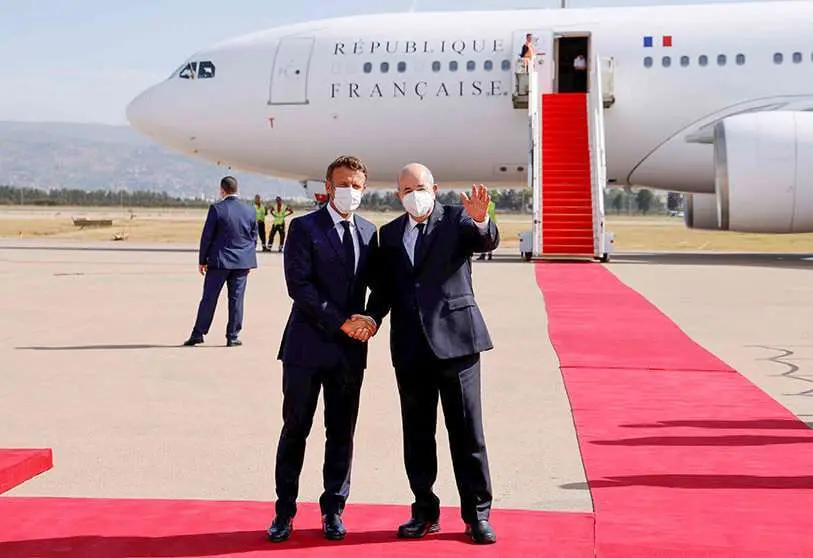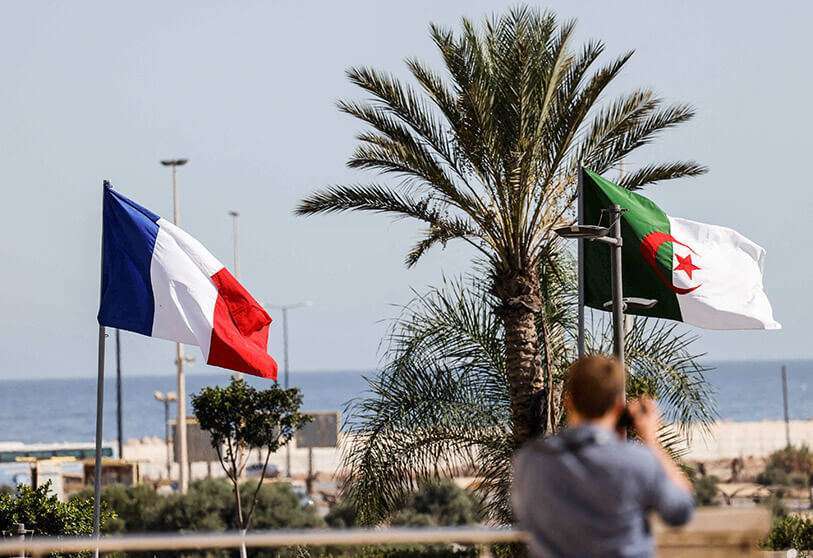Macron lands in Algeria to rebuild French-Algerian relations

French President Emmanuel Macron has landed in Algeria with one goal in mind: to rebuild ties with the North African nation, still torn apart by the turbulent colonial rule that ended six decades ago with a war of independence (1954-1962). Macron has not been able to heal the wounds. This time, the occupant of the Elysée Palace has a new opportunity to mend fences with the Algerian leadership in a context marked by energy supply shortages and the loss of influence on the continent after the definitive withdrawal of French troops in Mali.
The French leader arrived in Algiers in the early afternoon, after 15:00 local time (14:00 GMT). He was greeted by his counterpart, Abdelmadjid Tebboune, on the tarmac of the capital's Houari Boumédiène airport, with a solemn reception. It was a fitting occasion. This is the first visit by the French head of state since his re-election in April, the second in his first five years in office. Moreover, the visit coincides with the 60th anniversary of the independence of the former French colony.
Macron has thus kicked off an atypical three-day visit aimed at looking "towards the future", although the first stop on the tour was intended to be to the past. As was on the agenda, the leaders headed for the Martyrs' Monument, which commemorates those who fell during the war of independence. More symbols. At this time, the leaders will hold a face-to-face meeting alone, followed by a dinner at the El Mouradia Palace, the Algerian presidential residence.

But the French president has not travelled alone. He is escorted by an entourage of 90 people, including seven ministers, several business leaders and various personalities from the Algerian diaspora. The latter category includes boxer Sarah Ourahmoune, Olympic medallist in Rio de Janeiro. The hard core of the cabinet is also among those accompanying her: Bruno Le Maire, the economy minister, Gérald Darmanin, the interior minister. And Catherine Colona, the head of French diplomacy.
On his first trip to the Maghreb country, a newly elected Macron met with the hardened Abdelaziz Bouteflika. At that time, Algeria had not yet experienced the Hirak revolution, the popular outburst that put the regime on the ropes, and projections for the future were promising. Macron was the first president born after Algerian independence. On paper, the historical questions were over. And indeed they were when Macron called the colonial occupation a "crime against humanity". But the situation became increasingly tense.
Cross-accusations over issues related to historical memory, the controversy over visas and repatriations, and the fight against irregular immigration strained bilateral relations. In October, Macron's words in which he blamed the Algerian political elite for his own crisis, downplaying the colonial legacy, caused the definitive rupture. Algiers withdrew its ambassador to Paris and cut off all avenues for dialogue. In recent months, however, signs of détente have been a constant.

The stakes are high. For one thing, reducing gas dependence on Russia and alleviating the energy supply crisis that is looming over Europe for the coming winter. Algeria could be decisive. The Maghreb country, Africa's largest gas exporter, is working to make up part of the European supply deficit.
It will also be crucial for Macron to resolve France's loss of influence on the African continent. The final withdrawal of Barkhane's troops, who left Mali last week, and the subsequent arrival of other actors such as Russia and China threatens Paris's interests. Improving its relations with Algeria would mean reinforcing its languishing role in North Africa.
But the Elysée has been at pains to play down the strategic content of the visit. Macron has chosen to orient this visit towards the future, [focusing on] start-ups, innovation, youth, new sectors," the French presidency said in a note. Nothing to do with political or energy issues, which is hard to believe.








